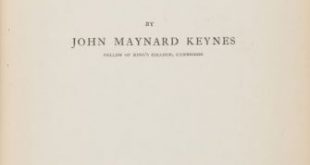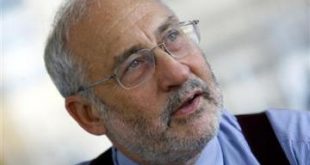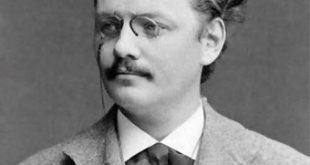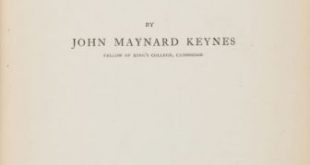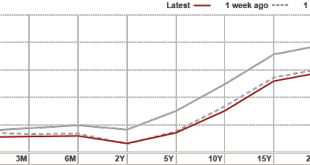Why economists can’t reason Reasoning is the process whereby we get from old truths to new truths, from the known to the unknown, from the accepted to the debatable … If the reasoning starts on firm ground, and if it is itself sound, then it will lead to a conclusion which we must accept, though previously, perhaps, we had not thought we should. And those are the conditions that a good argument must meet; true premises and a good inference. If either of...
Read More »On probability distributions and uncertainty
On probability distributions and uncertainty Almost a hundred years after John Maynard Keynes wrote his seminal A Treatise on Probability (1921), it is still very difficult to find economics textbooks that seriously try to incorporate his far-reaching and incisive analysis of induction and evidential weight. The standard view in mainstream economics – and the axiomatic probability theory underlying it – is to a large extent based on the rather simplistic...
Read More »Economics for everyone
[embedded content]
Read More »What is ‘effective demand’?
Economists of all shades have generally misunderstood the theoretical structure of Keynes’s The General Theory. Quite often this is a result of misunderstanding the concept of ‘effective demand’ — one of the key theoretical innovations of The General Theory. Jesper Jespersen untangles the concept and shows how Keynes, by taking uncertainty seriously, contributed to forming an analytical alternative to the prevailing neoclassical general equilibrium framework: Effective demand...
Read More »The invisible hand — invisible because it’s not there
The invisible hand — invisible because it’s not there Daniel Kahneman … has demonstrated how individuals systematically behave in ways less rational than orthodox economists believe they do. His research shows not only that individuals sometimes act differently than standard economic theories predict, but that they do so regularly, systematically, and in ways that can be understood and interpreted through alternative hypotheses, competing with those...
Read More »On the limits of the invisible hand
On the limits of the invisible hand [embedded content] It might look trivial at first sight, but what Harold Hotelling did show in his classic paper Stability in Competition (1929) was that there are cases when Adam Smith’s invisible hand doesn’t actually produce a social optimum. With the advent of neoclassical economics at the end of the 19th century a large amount of intellectual energy was invested in trying to formalize the stringent conditions of...
Read More »David K. Levine — unlucky when trying to think
David K. Levine — unlucky when trying to think In the wake of the latest financial crisis many people have come to wonder why economists never have been able to predict these manias, panics and crashes that haunt our economies. In responding to these warranted wonderings, some economists – like professor David K. Levine in the article Why Economists Are Right: Rational Expectations and the Uncertainty Principle in Economics in the Huffington Post – have...
Read More »L’urne que nous interrogeons
L’urne que nous interrogeons In my judgment, the practical usefulness of those modes of inference, here termed Universal and Statistical Induction, on the validity of which the boasted knowledge of modern science depends, can only exist—and I do not now pause to inquire again whether such an argument must be circular—if the universe of phenomena does in fact present those peculiar characteristics of atomism and limited variety which appear more and more...
Read More »Financing vs. Spending Unions: How to Remedy the Euro Zone’s Original Sin
In economic policy, timing isn’t everything, it’s the only thing. The euro zone crisis has been evolving for over seven years, making it difficult to time policy proposals. Now, the shock of Brexit has created a definitive political opportunity for reforming rather than patching the euro. With that in mind, I would like to revive [...]
Read More »Gazing into the distance
The result of the EU referendum was a considerable shock - not just to the UK, but to the EU and indeed to the whole world. Just how big a shock it was is evident from the fact that the OECD has suspended its forecasts until September. It usually only does this for "significant unforeseen or unexpected events", such as a major earthquake or a tsunami. Brexit is a shock to the global economy of a similar order. And it has permanently changed the world. Whatever the future holds, we can be...
Read More » Heterodox
Heterodox


